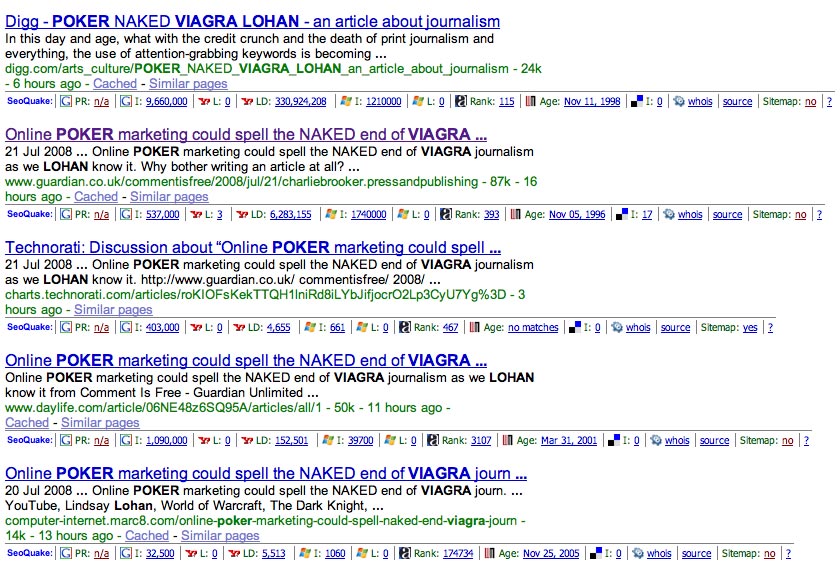Following the surge of comments generated by Charlie Brooker’s Comment is Free article, he’s asking this week what impact search engine optimisation could have on the quality of journalism online.
To take his point to the extreme Brooker gives us a fully SEO-ready article complete with celebrity names, certain pharmaceutical brands and political links (I’d mention them by name but that would start a kind of SEO vicious circle for this post).
As one commenter points out, Brooker’s got it spot on – at the time of writing his article occupies the top five slots when you Google the key SEO terms shown below:

Jokes aside – Telegraph.co.uk’s Shane Richmond has given us some insight into the site’s SEO strategy, would be good to hear what might be going on with the Guardian.
Of course he’ll have the top slot – he writes for a popular blog that people will link to. And there won’t be a great deal of competition for such a varied set of key words (unless people like to search for Linday Lohan taking viagra and playing poker?)
But in the real world, web writers can’t do that. Search engines look for good high-quality links to a web page as well as relevant content on a page.
So while you can stuff certain keywords into a web page if you want, you won’t get a high ranking unless lots of people look at at the content and then also link to it because they think it’s relevant. Unless of course, you don’t have any competition from other sites.
Right, I’m off to write an article about Mischa Barton taking aspirin while playing Snap…